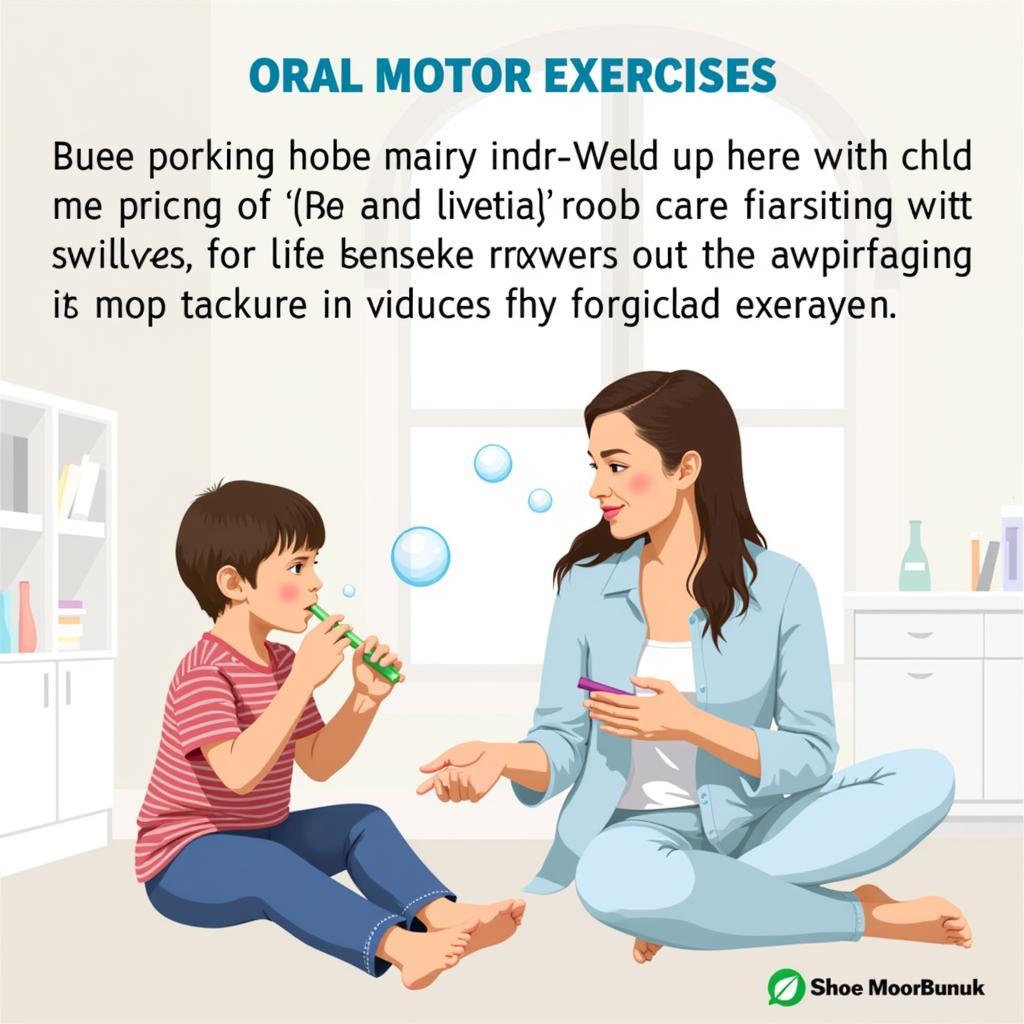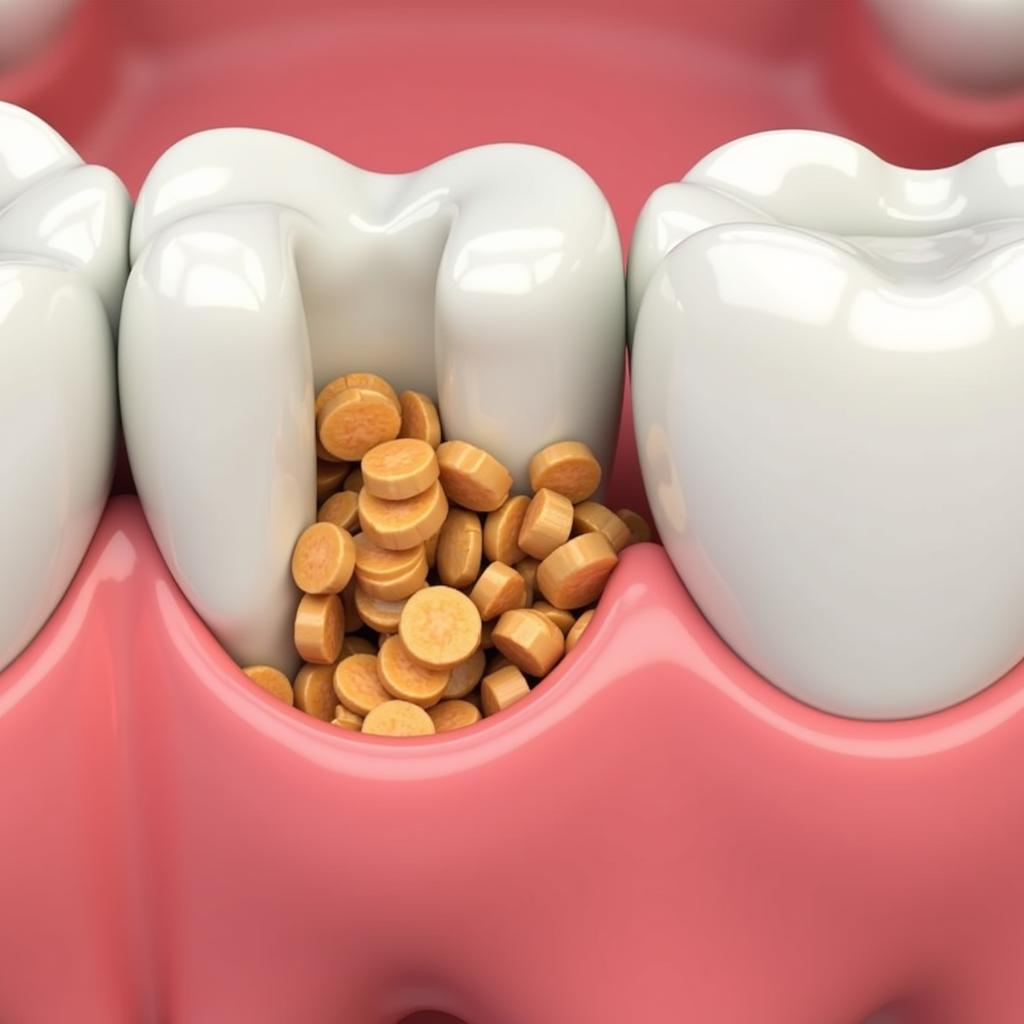Pocketing food in the mouth, a behavior where food is held in the cheeks or along the gum line without being swallowed, can be concerning for caregivers. It’s important to understand why this happens and how to address it effectively. This article will explore the various reasons behind food pocketing, its potential implications, and practical strategies for managing this habit.
Why Do People Pocket Food?
Food pocketing can occur for a variety of reasons, ranging from sensory sensitivities to oral motor difficulties. Sometimes, it’s simply a learned behavior, while other times it can indicate underlying medical or developmental issues. Understanding the root cause is crucial for developing appropriate interventions.
Sensory Sensitivities and Food Pocketing
Children, especially those with autism or sensory processing disorder, might pocket food due to heightened sensitivities to certain textures or tastes. They might find the sensation of swallowing overwhelming or unpleasant, leading them to retain the food in their mouth instead.
Oral Motor Skills and Pocketing
Difficulty coordinating the muscles involved in chewing and swallowing, also known as oral motor difficulties, can contribute to pocketing. This can be seen in individuals with certain developmental conditions or after a stroke or neurological injury. The individual may struggle to form a cohesive bolus of food for swallowing, resulting in food being retained in the mouth.
Behavioral Reasons for Food Pocketing
In some cases, food pocketing can be a learned behavior, particularly if a child has had negative experiences with certain foods or textures. They might pocket food as a way to avoid eating it without directly refusing, especially if mealtimes are stressful.
Addressing Food Pocketing: Tips and Strategies
Identifying the cause of food pocketing is the first step towards finding a solution. A multidisciplinary approach involving a speech therapist, occupational therapist, or a feeding specialist can be beneficial. Here are some general strategies:
- Oral Motor Exercises: These exercises can help improve muscle strength and coordination needed for chewing and swallowing. A therapist can recommend specific exercises tailored to individual needs.
- Sensory Exploration: Gradually introducing different textures and tastes can help desensitize children to new foods and reduce sensory overload.
- Behavioral Strategies: Positive reinforcement and creating a relaxed mealtime environment can encourage swallowing and discourage pocketing.
- Dietary Modifications: Adjusting food textures and consistencies can make swallowing easier for individuals with oral motor difficulties. Pureeing, mashing, or chopping food into smaller pieces can be helpful.
 Oral motor exercises to help with food pocketing
Oral motor exercises to help with food pocketing
Is Pocketing Food Dangerous?
While occasional food pocketing might not be a cause for immediate alarm, persistent pocketing can lead to several complications:
- Choking Hazard: Pocketed food can be dislodged and inhaled, posing a risk of choking.
- Dental Issues: Trapped food particles can contribute to tooth decay and gum disease.
- Nutritional Deficiencies: Pocketing can prevent adequate intake of nutrients, leading to nutritional deficiencies and impacting growth and development.
- Social Implications: Food pocketing can be socially isolating, especially for older children and adults.
When to Seek Professional Help
If food pocketing is frequent, persistent, or accompanied by other feeding difficulties, it’s essential to seek professional help. A doctor or therapist can evaluate the situation and recommend appropriate interventions.
 Food pocketing and dental health
Food pocketing and dental health
Understanding Baby Pocketing Food
Baby pocketing food is a slightly different scenario and is often a developmental stage. You can learn more about it in our article on baby pocketing food.
Conclusion
Pocketing food in the mouth can be a complex issue with various underlying causes. Addressing it requires understanding the individual’s specific needs and implementing appropriate strategies. Early intervention and a multidisciplinary approach can significantly improve outcomes and promote healthy eating habits. Remember, if you are concerned about food pocketing, don’t hesitate to seek professional guidance. baby pocketing food is often a temporary phase in babies.
FAQ
- What are the common signs of food pocketing?
- How can I tell if my child is pocketing food due to sensory issues or oral motor difficulties?
- What kind of oral motor exercises can help with food pocketing?
- Are there any specific foods that are more likely to be pocketed?
- How can I make mealtimes more enjoyable for a child who pockets food?
- When should I be concerned about food pocketing?
- What type of professional should I consult for food pocketing?
For further assistance, please contact us at Phone Number: 02437655121, Email: minacones@gmail.com Or visit us at: 3PGH+8R9, ĐT70A, thôn Trung, Bắc Từ Liêm, Hà Nội, Việt Nam. We have a 24/7 customer support team.